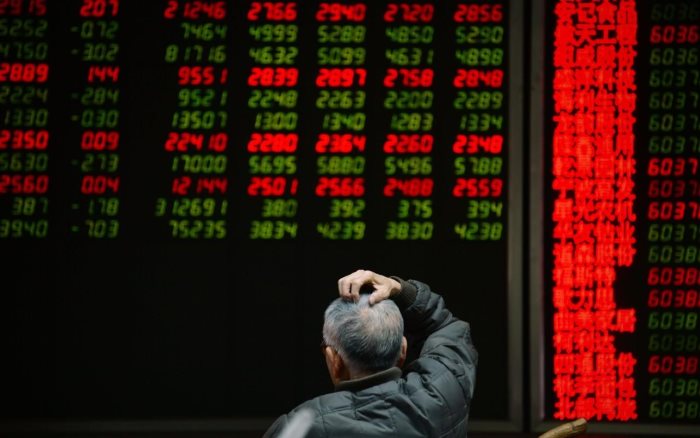Economy
China Takes Steps to Increase Bank Lending in Comprehensive Bid to Sustain Economic Expansion
China Takes Steps in a surprising move, China’s central bank has implemented a series of measures aimed at boosting bank lending for households and businesses. This early initiative forms part of a broader effort by Chinese authorities. They aim to stimulate economic growth in 2024 following a lackluster performance in the previous year.
Stock Market Concerns and Government Support
Against the backdrop of a struggling stock market, there are increasing signals of government intervention. Investors have noted a surge in share purchases by pension funds, insurers, and other state-affiliated entities, suggesting a collective effort to stabilize the market.
Unveiling the Reserve Requirement Cut
China Takes Steps as People’s Bank of China Governor Pan Gongsheng unexpectedly announces a cut to banks’ reserve requirements in Beijing, addressing both the stock-market downturn and supporting the broader economy.
Economists’ Skepticism and Desired Measures
However, some economists express skepticism. They argue that China needs not just cheaper loans. Additionally, they emphasize the necessity for a boost in government spending and assertive measures to resolve a prolonged real-estate crisis and enhance consumer confidence.
Central Bank’s Action and Potential Impact
While acknowledging the positive signal sent by the central bank’s action, Eswar Prasad, Professor of Trade Policy and Economics at Cornell University, cautioned. He noted that this move alone might have limited potency in the face of weak business and household confidence.
“The central bank’s move is positive, but Eswar Prasad warns it may have limited impact amid low confidence,” said WSJ Newspaper.
Reserve Reduction and Market Response
Pan Gongsheng outlined a plan in which the central bank would reduce the reserve requirements for banks holding against their deposits. This move is aimed at freeing up funds for new loans. The timing of this announcement caught many economists off guard. They were expecting a cut to banks’ reserve requirements later in the year.
Market Impact and Positive Developments
The announcement had an immediate impact on markets, with Hong Kong shares rallying. The Hang Seng Index ended the day 3.6% higher, marking its strongest performance in months. This follows another positive development earlier in the week when the State Council called for additional measures to stabilize the market.
Economic Challenges and Growth Rates
Despite these efforts, China’s economy only expanded by 5.2% in 2023, a faster pace than the previous year but still one of the weakest growth rates in decades. Exports suffered, consumption weakened, and a prolonged property downturn added to economic challenges.
Anticipated Measures and Passive Central Bank Role
Economists expect China to adopt a measured approach to stimulus in 2024. The focus is likely to be on fiscal policy, directing investments towards infrastructure and social housing. The central bank’s role is expected to be more passive, ensuring sufficient liquidity rather than aggressively cutting benchmark lending rates.
Stock Market Concerns Persist
China Takes Steps to Address Steep Stock Market Selloff: A key concern for officials is the benchmark CSI 300 losing over 40% of its value in the past three years, while Hong Kong’s benchmark index had already fallen 10% since the start of the year.
“China’s swift actions to curb stock market decline reflect deep worries over substantial value erosion,” according to Bloomberg.
Monitoring Effectiveness Amidst Economic Challenges
“The authorities are clearly concerned about the market sentiment,” observed Raymond Yeung, Chief Economist for Greater China at ANZ Bank. He made this statement following Pan’s unexpected announcement. As China grapples with economic challenges, the effectiveness of these measures will be closely monitored. The hope is that they contribute to a more robust and sustainable economic growth trajectory.

